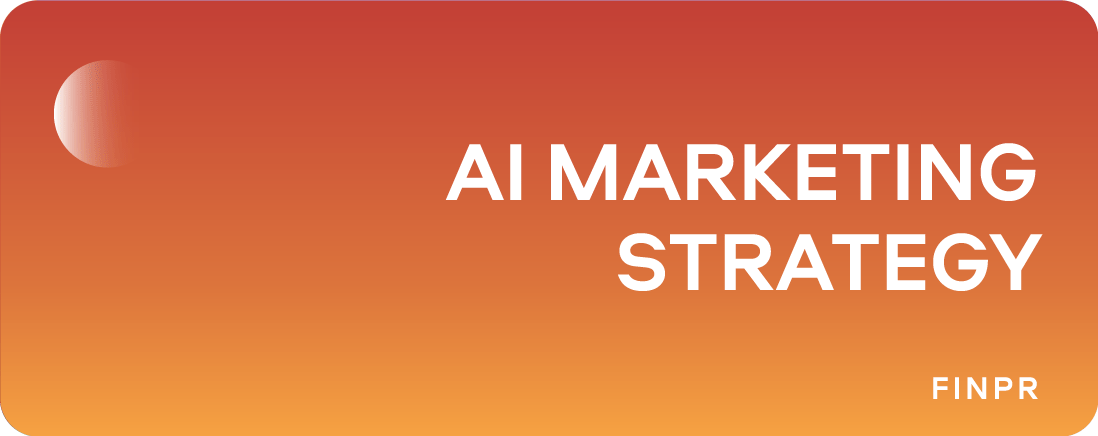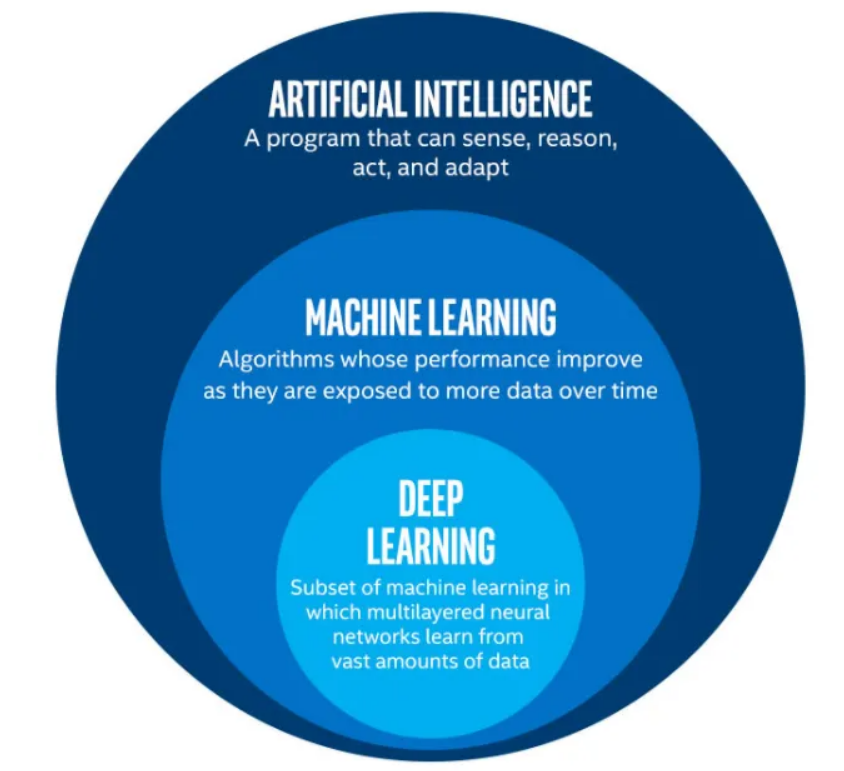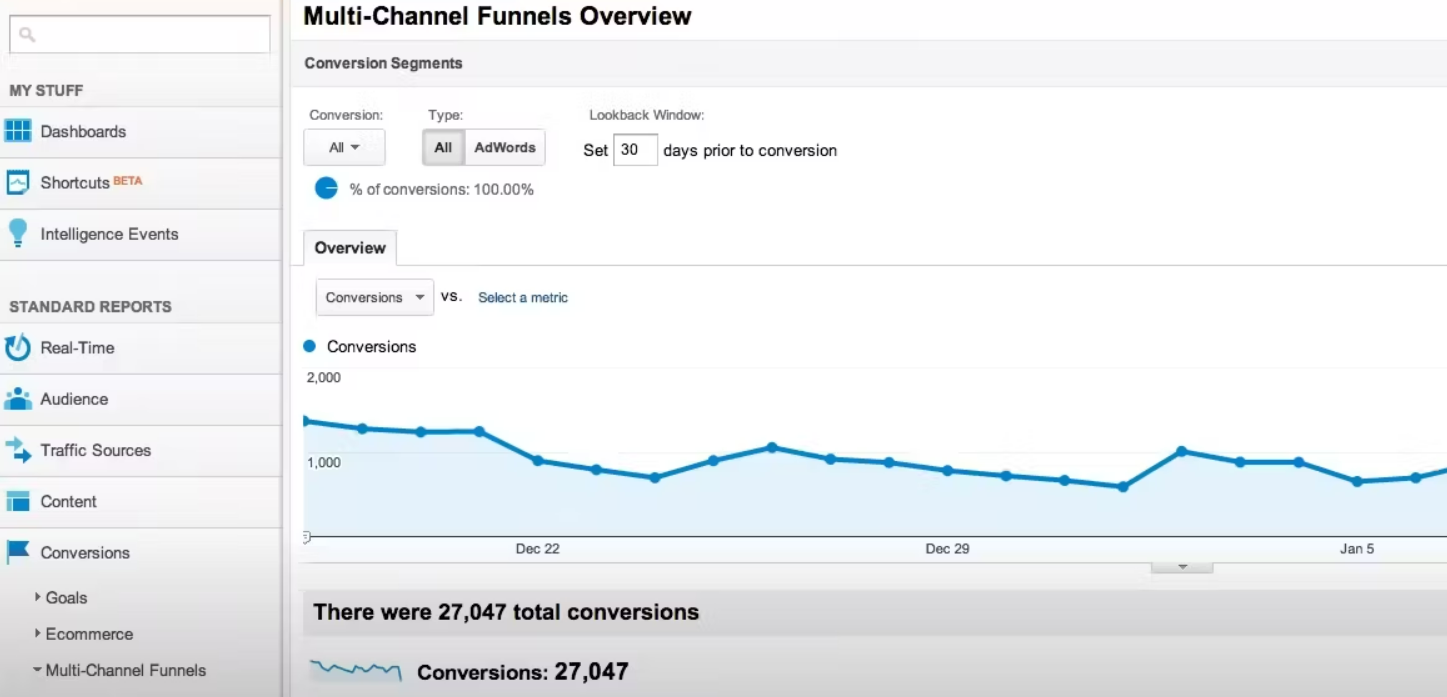
One of the most transformative technologies reshaping the marketing world is Artificial Intelligence (AI). AI marketing strategy leverages sophisticated algorithms and data analytics to optimize marketing efforts, deliver personalized experiences, and drive superior results. This comprehensive guide will delve into the intricacies of AI in marketing, providing insights and practical strategies to harness its full potential for your business.
Importance and Benefits of AI in Marketing
Artificial Intelligence in marketing refers to the use of AI technologies to automate and enhance marketing processes. AI enables marketers to analyze vast amounts of data quickly and accurately, making it possible to deliver more targeted and effective marketing campaigns.
The integration of AI into marketing strategies offers numerous benefits that can significantly impact a business’s performance and customer engagement. Some of the key advantages include:
- Enhanced Customer Insights: AI tools can process and analyze large datasets to uncover patterns and trends in customer behavior, providing marketers with actionable insights to refine their strategies.
- Personalization at Scale: AI enables the creation of highly personalized marketing messages and offers, tailored to individual preferences and behaviors, thereby increasing customer satisfaction and loyalty.
- Efficiency and Cost Savings: By automating routine tasks such as data analysis, content creation, and customer service, AI allows marketers to focus on more strategic activities, reducing operational costs.
- Improved Decision Making: Predictive analytics powered by AI can forecast future trends and customer needs, enabling marketers to make data-driven decisions and stay ahead of market shifts.
- Real-Time Marketing: AI facilitates real-time data processing and decision-making, allowing businesses to respond promptly to customer interactions and market changes.
Key AI Technologies Used in Marketing
AI has become an indispensable asset in the marketing world, revolutionizing the way businesses interact with their customers and optimize their strategies. The following key AI technologies are instrumental in driving this transformation:
Machine Learning (ML)

Machine Learning, a subset of AI, involves the development of algorithms that enable computers to learn from and make decisions based on data. In marketing, ML is used for:
- Predictive Analytics: ML algorithms analyze historical data to predict future customer behaviors and trends. This helps marketers to anticipate customer needs and tailor their strategies accordingly.
- Customer Segmentation: ML can identify distinct customer segments based on their behaviors, preferences, and demographics, allowing for more targeted and effective marketing campaigns.
- Recommendation Systems: Online platforms like Amazon and Netflix use ML to analyze user behavior and preferences to recommend products or content, enhancing customer experience and boosting sales.
Natural Language Processing (NLP)
Natural Language Processing is a branch of AI focused on the interaction between computers and human language. NLP is crucial for:
- Sentiment Analysis: NLP algorithms analyze customer feedback, social media posts, and reviews to gauge public sentiment about a brand or product. This insight helps marketers understand customer opinions and adjust their strategies accordingly.
- Chatbots: NLP-powered chatbots provide real-time customer support and engage with users conversationally, improving customer service and freeing up human resources for more complex tasks.
- Content Creation: NLP tools can generate written content, such as blog posts, social media updates, and product descriptions, by analyzing existing content and understanding language patterns.
Computer Vision
Computer Vision, a field of AI that enables computers to interpret and make decisions based on visual inputs, is increasingly used in marketing:
- Visual Search: Platforms like Pinterest and Google use computer vision to allow users to search for products using images. This technology can enhance the shopping experience by making it easier for customers to find what they’re looking for.
- Image Recognition: Brands use image recognition to analyze social media images for their logos or products, gaining insights into how their products are used and perceived by customers.
- Augmented Reality (AR): Computer vision powers AR applications that let customers virtually try on products, such as clothing or makeup, improving the online shopping experience.
Predictive Analytics
Predictive Analytics leverages statistical algorithms and machine learning techniques to identify the likelihood of future outcomes based on historical data. In marketing, it is used for:
- Forecasting Sales Trends: Predictive models can forecast future sales trends, helping businesses manage inventory and align marketing strategies with expected demand.
- Customer Lifetime Value (CLV) Prediction: Predicting the future value a customer will bring to the business helps in allocating marketing resources more effectively and developing long-term customer relationships.
- Churn Prediction: Identifying customers who are likely to stop using a service or product allows businesses to take proactive measures to retain them.
Personalization Engines
Personalization engines use AI to deliver tailored experiences to customers by analyzing their behavior, preferences, and interactions. This includes:
- Dynamic Website Content: AI personalizes website content in real-time based on the visitor’s past behavior and preferences, improving engagement and conversion rates.
- Email Personalization: AI customizes email content, subject lines, and send times based on individual user data, leading to higher open and click-through rates.
- Ad Targeting: AI optimizes ad targeting by analyzing user data to deliver personalized ads that are more likely to resonate with the audience.
Automated Marketing Platforms
Automated marketing platforms use AI to streamline and enhance various marketing processes:
- Campaign Management: These platforms automate the creation, execution, and analysis of marketing campaigns, making it easier to manage and optimize marketing efforts across multiple channels.
- Customer Relationship Management (CRM): AI-powered CRM systems help businesses manage and analyze customer interactions and data throughout the customer lifecycle, improving customer retention and sales.
- Lead Scoring: AI assigns scores to leads based on their likelihood to convert, allowing sales teams to prioritize efforts on high-potential prospects.
Building an AI Marketing Strategy
Creating an effective AI marketing strategy requires careful planning, a clear understanding of your objectives, and a structured approach to implementation. Below is a step-by-step guide to help you build a robust AI marketing strategy.
Assessing Your Current Marketing Strategy
Before integrating AI into your marketing efforts, it’s essential to evaluate your existing strategy. This involves:
- Analyzing Current Performance: Review the effectiveness of your current marketing campaigns, customer engagement, conversion rates, and ROI. Identify areas of strength and weakness.
- Identifying Data Sources: Assess the data you currently collect (e.g., customer interactions, sales data, web analytics) and determine its quality and comprehensiveness. Reliable data is crucial for AI applications.
- Technology Inventory: Catalog the tools and platforms you currently use for marketing. This will help identify gaps and potential areas where AI can enhance your efforts.
Identifying Goals and Objectives
Defining clear goals and objectives is critical for guiding your AI marketing strategy. Consider the following:
- Business Goals: Align your AI marketing strategy with your broader business objectives, such as increasing sales, improving customer retention, or expanding market reach.
- Marketing Goals: Specify what you want to achieve through AI, such as improved customer segmentation, personalized marketing, or enhanced analytics capabilities.
- Key Performance Indicators (KPIs): Establish measurable KPIs to track the success of your AI initiatives, such as click-through rates, conversion rates, customer satisfaction scores, or sales growth.
Understanding Your Target Audience with AI
AI can provide deeper insights into your target audience, enabling more precise targeting and personalization:
- Customer Profiling: Use AI to analyze demographic data, purchase history, and online behavior to create detailed customer profiles.
- Behavioral Analysis: Employ AI tools to understand how customers interact with your brand across different channels. This includes tracking website visits, social media engagement, and email interactions.
- Sentiment Analysis: Leverage AI to gauge customer sentiment from reviews, social media comments, and feedback surveys. This helps tailor your messaging to resonate better with your audience.
Setting Realistic KPIs for AI Integration
Establishing KPIs is essential to measure the impact of AI on your marketing efforts. Consider the following steps:
- Baseline Metrics: Start by identifying baseline metrics from your current marketing performance. This will help you measure the improvements brought by AI.
- SMART Goals: Ensure your KPIs are Specific, Measurable, Achievable, Relevant, and Time-bound. For example, aim to increase email open rates by 20% within six months through AI personalization.
- Regular Monitoring: Continuously monitor and analyze the KPIs to track progress and make necessary adjustments to your strategy.
Tools and Platforms for AI Marketing
To successfully implement AI in your marketing strategy, selecting the right tools and platforms is crucial. These tools can help you automate processes, analyze data, personalize customer interactions, and optimize campaigns. Below is an overview of some of the most popular and effective AI marketing tools and platforms across different categories.
CRM Systems with AI Capabilities
CRM systems enhanced with AI capabilities can transform customer interactions and relationship management:
- Predictive Sales Analytics: AI can predict future sales trends and customer behaviors, helping sales teams prioritize leads and opportunities.
- Personalized Customer Interactions: AI analyzes customer data to provide personalized recommendations and interactions, enhancing the customer experience.
- Customer Support Automation: AI-powered chatbots and virtual assistants can handle customer inquiries and support tasks, providing instant responses and freeing up human resources for more complex issues.
CRM systems with integrated AI capabilities can transform how businesses manage and interact with their customers:
- Salesforce Einstein: Salesforce Einstein leverages AI to provide insights, predict outcomes, and recommend actions. It offers features like predictive lead scoring, opportunity insights, and automated activity capture.
- HubSpot CRM: HubSpot CRM uses AI to enhance marketing automation, lead scoring, and customer segmentation. It helps businesses deliver personalized customer experiences based on data-driven insights.
- Zoho CRM: Zoho CRM’s AI assistant, Zia, helps with lead prediction, anomaly detection, and workflow automation. It provides actionable insights to improve sales and marketing efforts.
Analytics Tools
Analytics tools powered by AI can process vast amounts of data to uncover actionable insights, optimize marketing strategies, and improve ROI:
- Google Analytics 360: Google Analytics 360 uses machine learning to analyze user behavior and predict future actions. It offers advanced segmentation, data visualization, and integration with other Google Marketing Platform tools.

- Adobe Analytics: Adobe Analytics employs AI to provide deep insights into customer journeys. Its AI-powered features include anomaly detection, predictive analytics, and automated segmentation.
- IBM Watson Analytics: IBM Watson Analytics uses natural language processing and machine learning to provide data analysis, visualization, and predictive insights. It helps marketers understand trends and optimize campaigns.
Content Generation Platforms
AI content generation platforms can create high-quality content efficiently, helping marketers maintain a consistent and engaging content strategy:
- Jarvis (formerly Conversion.ai): Jarvis uses ChatGPT technology to generate blog posts, social media updates, ad copy, and more. It helps marketers produce content quickly and effectively while maintaining quality.
- Writesonic: Writesonic leverages AI to create a variety of content types, including articles, landing pages, product descriptions, and email copy. It offers templates and customization options to fit different needs.
- Copy.ai: Copy.ai uses machine learning to generate marketing copy, social media content, and email campaigns. It provides a user-friendly interface for creating engaging content quickly.
Personalization Tools
Personalization tools powered by AI help deliver tailored experiences to customers, increasing engagement and conversion rates:
- Dynamic Yield: Dynamic Yield uses AI to personalize website content, product recommendations, and email campaigns. It analyzes user behavior to deliver relevant experiences in real-time.
- Monetate: Monetate’s AI-driven personalization engine helps marketers create individualized experiences across websites, email, and other channels. It uses predictive analytics to optimize content and offers.
- Evergage: Evergage provides real-time personalization and customer data platform capabilities. Its AI engine analyzes user interactions to deliver personalized recommendations and messages.
Advertising Platforms
AI can revolutionize advertising by making it more targeted and efficient:
- Programmatic Advertising: AI automates the buying and selling of ad space in real-time, ensuring that ads are placed in front of the right audience at the right time. This increases the efficiency and effectiveness of ad spend.
- Real-Time Bidding (RTB): AI algorithms participate in real-time auctions to bid for ad space, optimizing bids based on user data and predicted performance.
- Personalized Ad Campaigns: AI analyzes user data to create highly personalized ad experiences, increasing the likelihood of engagement and conversion.
- Ad Performance Optimization: AI tools can continuously monitor and analyze ad performance, making real-time adjustments to improve results and ROI.
AI-driven advertising platforms can automate and optimize ad campaigns, ensuring better targeting and higher ROI:
- Google Ads: Google Ads uses machine learning to optimize bidding, targeting, and ad placements. Features like Smart Bidding and responsive search ads help maximize campaign performance.
- Facebook Ads: Facebook Ads leverages AI to deliver personalized ads based on user behavior and preferences. Its AI algorithms optimize ad placements and targeting to improve engagement and conversions.
- Adext AI: Adext AI automates ad management and optimization across multiple platforms, including Google Ads and Facebook Ads. It uses machine learning to improve ad performance and increase ROI.
Email Marketing Platforms
Email marketing is another area where AI can make a significant impact:
- Automated Email Campaigns: AI can automate the creation and distribution of email campaigns, ensuring timely and relevant communication with your audience.
- Personalized Email Content: AI tools analyze customer data to personalize email content, subject lines, and offers, leading to higher open and click-through rates.
- Behavioral Triggers: AI can set up automated email sequences based on user behavior, such as browsing history or past purchases, to nurture leads and encourage conversions.
- A/B Testing: AI can conduct A/B testing on various email elements to determine the most effective strategies for different segments of your audience.
Email marketing platforms enhanced with AI can improve open rates, click-through rates, and overall campaign effectiveness:
- Mailchimp: Mailchimp’s AI features include predictive demographics, personalized product recommendations, and send-time optimization. It helps marketers create and deliver targeted email campaigns.
- ActiveCampaign: ActiveCampaign uses AI to automate email sequences, segment audiences, and personalize content. Its predictive sending feature optimizes email delivery times based on user behavior.
- Sendinblue: Sendinblue leverages AI for email automation, personalization, and A/B testing. Its machine learning algorithms help optimize email content and delivery.
Chatbots and Customer Support Tools
AI chatbots and customer support tools enhance customer service by providing instant, accurate responses and automating routine tasks:
- Drift: Drift uses AI to engage website visitors, qualify leads, and book meetings. Its conversational AI capabilities improve customer interactions and sales processes.
- Intercom: Intercom’s AI-powered chatbots handle customer inquiries, provide support, and guide users through their journey. It integrates with CRM systems to deliver personalized experiences.
- Zendesk Answer Bot: Zendesk Answer Bot uses AI to provide instant answers to customer questions, reducing response times and improving customer satisfaction. It integrates with the Zendesk support platform for seamless operations.
Choosing the Right AI Tools for Your Business
Selecting the right AI tools for your business involves careful consideration of several factors:
- Business Needs: Identify the specific needs and challenges of your business that AI tools can address. Focus on areas where AI can provide the most significant impact.
- Features and Capabilities: Evaluate the features and capabilities of different AI tools. Ensure they align with your marketing goals and can integrate with your existing systems.
- Ease of Use: Choose AI tools with user-friendly interfaces and robust support resources. This ensures that your team can quickly adapt and leverage the tools effectively.
- Scalability: Consider the scalability of the AI tools. Ensure they can grow with your business and handle increasing data volumes and complexity.
- Cost: Assess the cost of AI tools in relation to your budget and expected ROI. Look for tools that offer a good balance of features and affordability.
The Verdict
Integrating AI into your marketing strategy offers immense potential to enhance efficiency, personalization, and overall effectiveness. By leveraging AI-powered tools across various marketing channels, businesses can gain deeper insights, automate processes, and deliver tailored experiences to their audience. The key to success lies in selecting the right AI technologies that align with your specific goals and needs. As AI continues to evolve, staying informed and adaptable will ensure your marketing strategy remains competitive and impactful in the ever-changing digital landscape.




